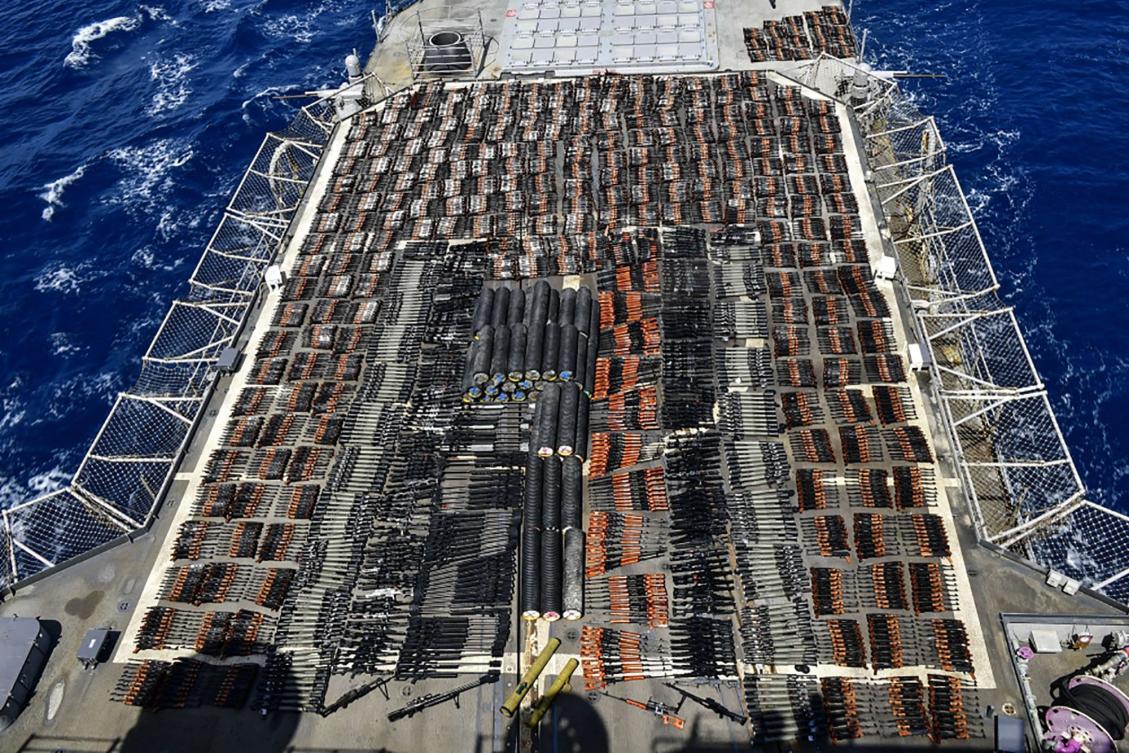JERUSALEM: Israel braced for more protests on Saturday after clashes at Jerusalem’s flashpoint Al-Aqsa Mosque compound left more than 200 people injured.
The unrest followed Friday prayers when Israeli riot police fired rubber bullets, tear gas and stun grenades at Palestinians as violence erupted outside Islam’s third holiest site.
At least three people were seriously injured when Israeli troops used rubber bullets to disperse worshippers at the UNESCO world heritage site.
Israeli forces stormed the mosque’s plaza and fired sound grenades inside the building, where throngs of worshippers, including women and children, were praying on the last Friday of Ramadan.
The clashes came amid soaring tensions over Israeli restrictions on access to parts of the old city during Ramadan and the threat of eviction hanging over four Palestinian families in East Jerusalem to make way for Jewish settlers.
The Israeli violence drew worldwide condemnation.
Saudi Arabia’s Ministry of Foreign Affairs said in a statement that the Kingdom “rejects Israel’s plans and measures to evict dozens of Palestinians from their homes in Jerusalem and impose Israeli sovereignty over them.”
The UAE “strongly condemned” the clashes and potential evictions, and a statement by Khalifa Al-Marar, the foreign affairs minister, urged Israeli authorities to reduce tensions.
The UAE stresses the need for Israeli authorities to assume their responsibilities in line with international law to provide protection to Palestinian citizens, a statement carried by state news agency WAM said.
Wasfi Kailani, executive director of the Hashemite Fund for the reconstruction of Al-Aqsa Mosque, told Arab News that there was no excuse for the Israeli action.
“What happened on Friday night is inexcusable. Violating the mosque’s sanctity during the last 10 holy days of Ramadan is illegal and a clear violation of the right to worship. Its status quo must be protected.”
Kailani, a member of the Jerusalem Waqf Council, said Israeli forces not only violated the peace of worshippers but also destroyed mosque property, including its clinic and gates.
Hijazi Risheq, head of the Jerusalem Merchants Committee, told Arab News that attacks by Israeli forces were meant to intimidate Palestinians following threats by Jewish extremists of a large-scale infiltration into Al-Aqsa on what they call Jerusalem Day.
“However, the people of Jerusalem have broken the barrier of fear and are no longer afraid of Israeli soldiers or Israeli prisons,” he said.
Risheq called on Arab and Islamic countries to help Palestinians defend the mosque.
The late-night clashes in the old city of Jerusalem followed days of tension in the Sheikh Jarrah neighborhood, where Israelis are trying to evict an entire Palestinian community and hand over their properties to ultra-extreme Jewish settlers.
The Waqf Council, Jordan, the US, EU, and European and Arab countries issued statements denouncing the violence in the city.
The US called on all parties to avoid actions that could damage final status talks between Israel and Palestinians, including settlements.
The UN Security Council Resolution 2334 considers all settlements, including those in Jerusalem, illegal.
Israeli police issued a statement saying officers were attacked with stones and firecrackers and had to restore order.
A police statement claimed that 17 officers were injured, with at least half requiring further attention.
Palestinian citizens of Israel traveled in at least six buses to show their support for worshippers at Al-Aqsa Mosque, but were barred entry near the village of Abu Ghish.
After they disembarked and began to walk the remaining 20 km distance to the site, local residents came to pick them up in private cars.




